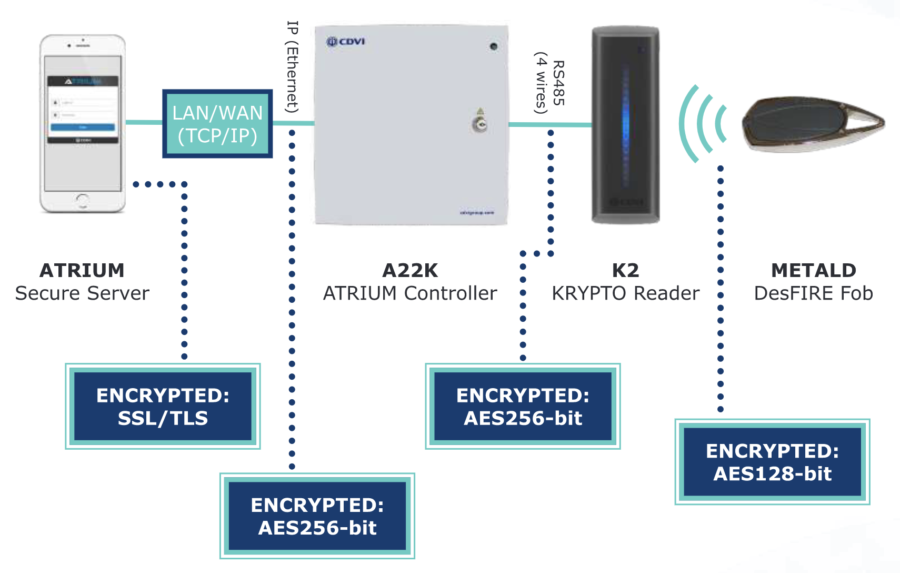Access control for government buildings
There are an estimated 5.7 million people working in the public sector across the central and local government branches. The buildings where these people work often house huge workforces, as well as private data about individuals like addresses, contact information, healthcare records, and financial data. It is therefore essential that these facilities are protected by extremely robust security. Any breach of the building or its systems would be catastrophic.
With so many people coming and going and such a significant requirement for security, finding a balance between protection and convenience in access control for government buildings can be challenging. The public sector is extremely hierarchical, and different groups of people are allowed access to different parts of a building based on their role. An effective access control system needs to make it easy to manage such complex requirements.



Combining security and convenience
ATRIUM is an online access control platform that offers flexibility and convenience for installations both small and large, up to 500 doors and 10,000 users. With its innovative grouping of individual doors into larger areas, it’s quick and easy to assign users only to the building zones for which they have authorisation. In other words, you determine who can go where, when. Sometimes large workforces need to adjust access permissions for special occasions, different schedules, and public holidays. Within ATRIUM’s user-friendly interface, these can be set up with a few simple clicks.
Choosing the right credentials
There are a wide variety of credentials available on the market. They range from traditional physical credentials like cards and tags to Bluetooth-powered smartphone credentials and biometric data like fingerprints and facial features. When you’re choosing the right kind of credentials for your system, it’s important to take into account:
- The convenience factor for everyday users
- The level of security technology that’s required
- The risks of each type of credential
- The admin burden of managing the system
End-to-end encryption
Access control for government buildings protects sensitive data and expensive equipment. Security is of the highest priority. KRYPTO is an ultra-high security version of the ATRIUM access control system, equipped with end-to-end encryption to make card cloning a thing of the past.
The KRYPTO system automatically generates unique authentication keys, ensuring that only authorised individuals can gain access to an area. The building is protected, the users are protected, and the data being passed from credential to reader, reader to controller, and controller to server is all protected.
How it works
The communication between the different elements of the KRYPTO system is concealed by AES encryption. This is a type of cypher that has been selected by the US government as its preferred method of data encryption.
An algorithm is applied to the data being transmitted that conceals the true meaning of the data. The strength of AES encryption is in the sheer number of times the data is transformed during the encryption process. It would take billions of years to penetrate an AES256 key using current technology.

